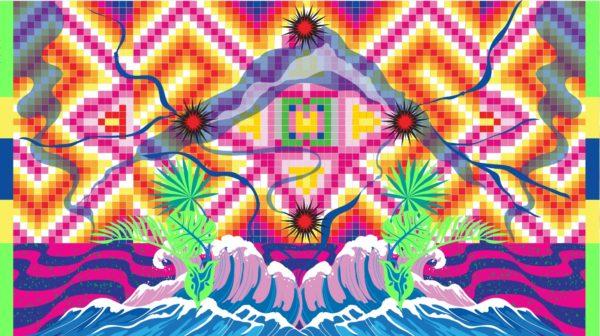D*SCHOOL Wissen über Brücken – Conocimiento sobre puentes
D*SCHOOL Wissen über Brücken – Conocimiento sobre puentes
Relating to Gloria E. Anzaldúa in Words, Vision and Context. A project in three strands by Verena Melgarejo Weinandt, District * School without Centre in cooperation with the sonntagsbureau in the Amerika-Gedenkbibliothek Berlin and the Verlag Zaglossus
It comprises:
– the translation of Gloria E. Anzaldúa’s work Borderlands/La Frontera. The New Mestiza (1987) into German
– of the event series Nepantla Library
– and a further publication, which will be presented in a final exhibition at District
The starting point of the project Wissen über Brücken is the translation of Gloria E. Anzaldúa’s most famous work Borderlands/La Frontera. The New Mestiza (1987) from English into German. GLORIA E. ANZALDÚA (1942 – 2004) was self-proclaimed “Chicana, tejana, from the working class, dyke-feminist poet, author-theorist”. Her book Borderlands/La Frontera shifts and complicates the concept of what is considered a border. Based on the history of the Mexican-American border, a geographical definition is expanded and presented not only as a violent but also as a potentially transforming space within which opposites, differences and paradoxes coexist, collide and enable change. The volume This Bridge Called My Back. Writings by Radical Women of Color (1981), released together with Cherríe Moraga, is a fundamental work for a genealogy of the struggles and representations of women of color in the USA and conceptualizes queerness intersectionally long before it became a subject of university research.
Wissen über Brücken – Conocimiento sobre puentes is a collective translation project that extends the linguistic translation process by asking what this translation currently means in the German-speaking context. Why is this translation politically, artistically, spiritually relevant and necessary? How have marginalised voices and positions received Anzaldúa and fought for her dissemination in the German-speaking countries? Anzaldúa‘s knowledge production is based on knowledge that is based on lived experience, that arises in and from the chicana community, knowledge that is not institutionally anchored. What knowledge can be visible and localized locally with the help of Anzaldúa’s “tools”? How can we build bridges from Anzaldúa to other knowledge and positions?
These translation works will be presented in a series of events at District and as part of the action Open Sunday of the Sonntagbureau at the Amerika-Gedenkbibliothek Berlin in the form of workshops, lectures, readings, and performances. From these and other contributions, a further publication will emerge, which will be presented in a concluding exhibition.
With the kind support from the Senatskanzlei von Berlin – Kulturelle Angelegenheiten.












